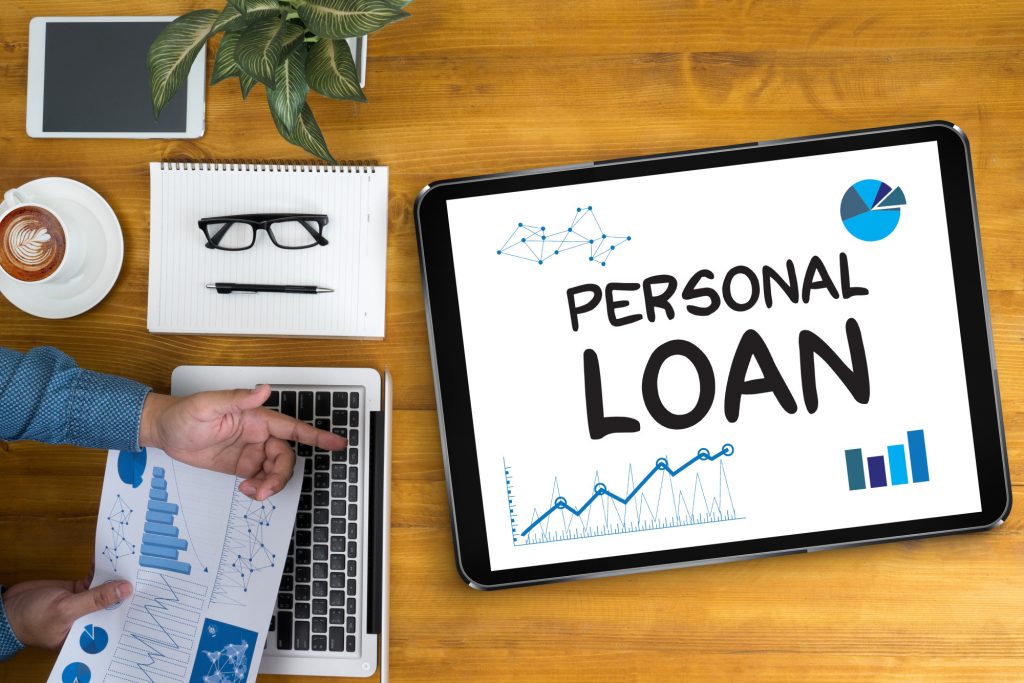People take out loans for many reasons. Some people take out loans for a house remodel, a new computer for work, or a wedding. Whatever the reason for taking out a loan, it’s always a big decision.
When making a big purchase, you want to consider every option so you get the best rate possible. Many vendors provide their financing solutions. However, it is in your best interest to consider other options.
One of the best options for purchasing is a fixed rate personal loan. But what is a fixed-rate loan, and why are they better?
What Is a Fixed Rate Personal Loan?
Many people prefer fixed-rate loans because the interest rate and monthly payment of the loan are consistent throughout the loan’s life. That’s ideal for people on a tight budget who need to plan for a specific amount each month.
One common example of a fixed-rate loan is a thirty-year mortgage. With these kinds of loans, purchasers keep the same fixed payment amount for the entirety of the loan until it is completely paid off. The loan doesn’t have to be for a house, though. You can take out a loan on just about anything.
Most banks will require a statement of what the loan is for before they give you the money. As long as it’s for nothing illegal, and you have the income that shows you can make the payments, you should be good to go for whatever it is.
Interest rates depend on the loan amount and your credit score. As a rule, the larger your monthly payment, the lower your interest rate. In other words, the quicker you pay off the fixed-rate loan, the less interest you’ll pay in total.
Fixed-Rate Loan vs. Seller Financing
Many vendors will offer in-house financing for their items. This is tempting because you don’t have to wait for loan approval and experience that instant gratification.
However, before you commit to seller financing, it is in your best interest to explore other loan options. With a personal loan, you will get a better interest rate. That results in a lower overall purchase cost.
With a personal loan, you can decide how much money you need to make the purchase. Instead of financing the entire purchase, you can finance only part of the purchase.
Seller financing typically has much higher interest rates. So, if you do not plan on paying off the loan within a short amount of time, you will end up paying more in the end.
With a fixed-rate loan, you know exactly how much you’ll spend overall on the purchase before you sign the contract, no matter how long it takes you to pay the loan.
What to Consider Before Getting a Personal Loan
Before getting a personal loan from a bank, it’s a good idea to determine a few things. First, figure out how much money you need to borrow. Most lenders have a minimum requirement for personal loans. Some minimums are as low as $500. However, others are twice that.
You don’t want to take out a loan that’s bigger than you need. If your loan is under $500, consider other options.
Before you qualify for a loan, consider how long it will take to pay off. Some loans can be paid off in a matter of months, others years. Depending on your monthly payments and the loan amount, you have to decide how long you’re willing to take.
Finally, the most important factor to consider is whether or not you can afford the monthly payments. No matter how big or small the payment is, you have to pay it every month on time to avoid extra fees.
Credit Scores and Loans
Your credit score determines the kind of rate you get on the loan. It could also determine what kind of loans you have access to. If your credit score is too low for the kind of loan you want, you have two options. You can wait to make the purchase and build up your credit in the meantime. Or, you could have a co-signer on the loan.
Another thing to think about is how the loan will affect your credit. If you don’t have much credit, having a loan and paying it off may improve your credit.
As long as you pay the monthly payments every month on time (or if you pay the loan off early), your credit score shouldn’t be negatively affected.
Paying Off Credit Card Debt With a Personal Loan
If you have several maxed-out credit cards, you can use a fixed rate personal loan to consolidate the debt into one payment. Since fixed-rate loans have better interest rates and lower fees than credit cards, this can save you some money as well.
Some loan companies will pay the loan money directly to the credit card company. That way, you only have to worry about paying the one fixed-rate payment a month.
Other people choose to refinance their student loans into fixed-rate personal loans. This is an option for people who cannot afford their previous monthly rates. However, this keeps you from taking advantage of any government assistance with your student loan. So, whether that is helpful to you or not depends on the amount of student debt left on the loan.
Find More Finance Advice
If you’re thinking about making a purchase, consider all your options. Before you go through with seller financing, look into your fixed-rate personal loan options. That could save you money and hassle in the future.
Before settling on a loan, make sure you can afford the monthly payments, check your credit score, and ensure you have a regular, reliable income. If you do those things, a fixed rate personal loan is a good option for you.
If you found this article helpful, visit our blog for more financial advice.
